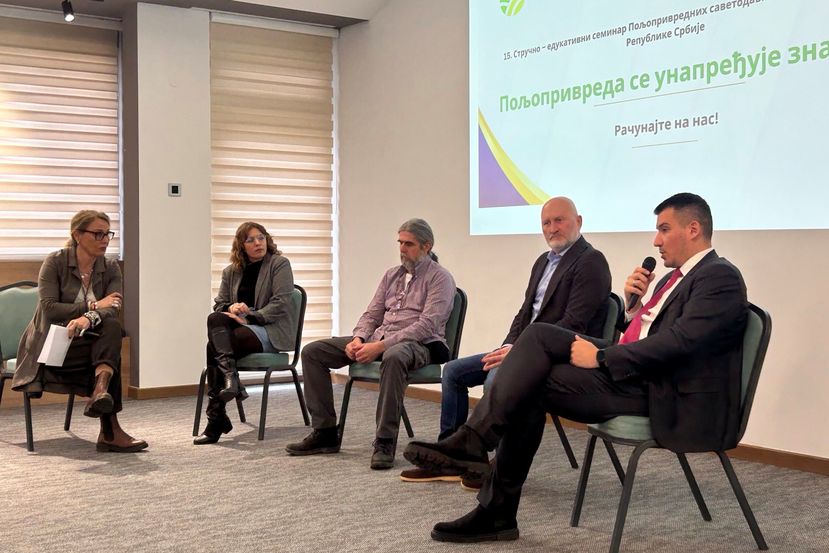The soil quality in Serbia - Knowledge session report
A knowledge session, organized by the Dutch Embassy in Serbia, raised awareness of the importance of soil health and the transition to sustainable agricultural practices

Experts warn that soil pollution in Serbia is becoming a critical issue, driven by industrial activities, urbanization, intensive agriculture, and poor waste management. "Overall, Serbia's soil quality is good and suitable for producing healthy food," stated Ms Jordana Ninkov, Scientific Advisor at the Institute for Field and Vegetable Crops in Novi Sad for the national broadcaster RTS. "However, pollution from agrochemicals, industrial contaminants, landfills, and the energy sector is increasingly threatening soil health." The primary pollutants include heavy metals like lead and cadmium, pesticides, nitrates, phosphates, plastics, organic pollutants, wastewater and sludge.
Southeastern European countries, including Serbia, experiences higher pollution levels than Western Europe, with an estimated 60-70% of European agricultural land labeled unhealthy due to organic matter loss and erosion. "In Serbia, the situation is less severe, but the soil’s quality is below its natural potential, especially in Vojvodina," notes Ms Ninkov. "This region, rich in chernozem, Europe’s most fertile soil, is among the least forested and lacks sufficient livestock, pastures, and organic fertilizers." To address this, supporting farmers in transitioning to regenerative agriculture is critical. "This shift requires significant investments, modern equipment, farmer education, and organized production systems," explains Ninkov. "The benefits, however, will take years to materialize, making institutional, professional, and financial support essential." Efforts to combat soil pollution require investments in monitoring, rehabilitating contaminated plots and promoting sustainable practices.
To further raise awareness about the importance of soil health and facilitate the transition towards more sustainable agricultural practices, the Dutch Embassy in Serbia organized a knowledge session on regenerative agriculture during the annual conference of agricultural advisory service. Koen van Ginneken, Agricultural Counsellor at the Dutch Embassy in Serbia, shared some insight on activities and efforts of the Dutch government to bolster regenerative agriculture. He highlighted that according to the FAO about one-third of the world’s soil has already been degraded and if we don’t take action over 90% could become degraded by 2050 and called for continued cooperation on the topic to help restore degraded soils.
Flórián Farkas, a farmer from Subotica, presented his successes with practices like cover cropping, crop rotation, and reduced tillage, which improved both soil quality and crop yields. During the panel discussion that followed experts like Predrag Klepic explained the logic in large agribusinesses when adopting sustainable practices, while civic organizations like NALED and Balkan Eco Innovations highlighted the barriers small farmers face in making the transition from conventional to regenerative farming as well as benefits of connecting with international organizations like EIT Food and Foodvalley NL for knowledge building and exchange. . Danijela Mirjanic, State Secretary from the Serbian Ministry of Agriculture, informed the audience about formation of an inter-ministerial working group on regenerative agriculture and stated that Ministry is exploring ways to assist farmers willing to apply agricultural practices that will halt soil degradation and safeguard this vital natural resource for future generations. All speakers stressed soil health is central to adapting to and mitigating the effects of climate change.